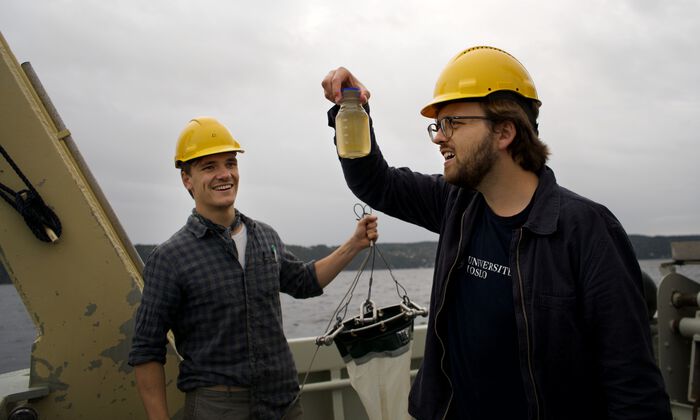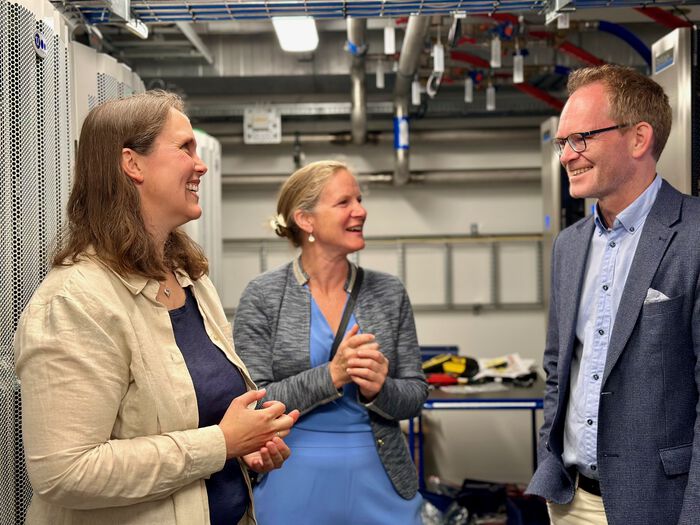This article is written by Isabel Montoya Arroyave.

It so happens that we, as humans, tend to “hide” our mistakes, flaws, anxieties, insecurities, you name it. I mean, who wants to put her/himself out there and be vulnerable to any criticism? Nei, takk. However, given that we know ourselves from the inside but we only know the others from the outside, it makes complete sense that we are constantly aware of our flaws and insecurities which makes us feel like we are isolated with all of these “bad” things that no one else is experiencing, and it leaves room for creating some sort of surreality where people around you are somewhat “perfect”, and you, in consequence, are the only flawed and insecure human being. Well, honey, FAR FROM IT. And here comes the concept of “pluralistic ignorance”, where we each doubt ourselves in private and believe we are alone in thinking this way because no one voices their doubts, and precisely here is where lies the core of the impostor experience. But first, let's take it back a bit ...
People do seem to always be so confident and smart, but how do they do it? When it comes to me, sometimes (more often than never) I even find it difficult to accept compliments, but it seems to me that people not only accept them easily but they seem to think that about themselves as well, my heroes! However, I have come to realize that this is hardly the case, people are very prone to feeling like a fraud, but they prefer not to voice it out of fear of being exposed.
The academic environment
Now, in the academic environment this feeling is quite common, more common than you would think. Working in this field can yield a bit (or a lot) of pressure and it can get overwhelming from time to time. But where is this pressure coming from? Well, many places really, but today I will focus on one: self-pressure.
This feeling of inadequacy, feeling like your achievements are not really well deserved, that they are just a "stroke of luck" rather than a result of your hard work and skills is very common among academics. And when I say 'very common' I mean it. Let's see, would you believe me if I told you that Albert Einstein felt like a fraud? At some point he described himself as an “involuntary swindler”… say what?! If Albert freaking Einstein thought that about himself and his work, is there any hope for us, really?
The answer is YES. And I will now share my experience:
Throughout my career I have not been oblivious to these feelings, of course, there is a reason why I chose to talk about it. It has been a recurrent thought for me to believe that I am way behind the people around me. It started in my bachelor when I decided to study Engineering Physics (freaking cool, right?!), it didn't take long for me to start feeling like I didn't belong, it felt like I needed to work thrice as hard just to understand something while to my friends it seemed so natural, therefore recurrent thoughts such as "I shouldn't be here", "I don't deserve my spot", "did I cheat my way in?", etc., would come to me on a daily basis. However, even then, there were people admiring my work and my talents, which to be honest only made me feel more self-conscious about my insecurities and more like a phony. BUT, this feeling has another side to it, it can also be a great push for you to give the best of yourself and work to the best of your abilities, and I mean, who can call that being “phony”? If that isn't being genuine and true to yourself, then nothing is.
Realizing this helped me a lot throughout the rest of my bachelor's and I even came to believe it had become a thing of the past, but then came the Master's degree… :)
I moved to Sweden (from Colombia) and as you can imagine a completely different culture, but also a somewhat different field of studies, since I had just finished a bachelor's in engineering and was entering the field of astrophysics (even cooler, I know), but having no background in astronomy definitely made it challenging and the feelings of self-doubt resurfaced. It was difficult, I must admit, but I was finally studying what had been my dream all along and I was all in, so the passion for it definitely made it better, and then again giving the best of myself and working to the best of my abilities was all that I could do and what do you know?! It paid out! I found the topic that I truly love about astrophysics and pursued it to the point where I earned a PhD position in Oslo to keep studying it. But does that mean I was free at last of having impostor experience? Ha, nope.
Take home message N1.

When you think about it, being at PhD level can trigger even more of these feelings, and it may seem that all I have said is going nowhere and there is no hope, but as I said before, THERE IS HOPE, so bear with me. PhD research can be a bit scary, we are launching ourselves into the unknown with nothing but our own confidence that the direction we are taking is productive and likely to yield something useful, there's no one to tell us that we are on the right track. .. I mean, we are creating the track!
And this brings me to one of the most important messages I want to transmit: you ought to love the process and not the product!
Once you learn to love the research process plus knowing that you have worked to the best of your abilities there is little room for the crippling sense of self-doubt and uncertainty that is endemic to a research career, which is why it is most important to find ways to keep the motivation high and gather a support system that encourages us.
It has been shown that being open about your feelings of impostorism can help a lot, once you realize you are not alone with these thoughts and feelings of inadequacy (and when I say 'not alone' I mean you are greatly surrounded by people in the same situation) you automatically put them into perspective. However, I do understand that voicing these feelings can also be scary, since by definition, impostor experience comes with a constant fear of people finding out that you are a fraud, so this step requires an important leap of faith, and once you've done that you will soon realize how well accompanied you are.
Take home message N.2
Having some perspective will help you understand that these thoughts are just that: thoughts, which in turn will help you realize that this is not your reality but a scenario you have created in your mind coming from self-doubt and insecurity. It is also important to understand and keep in mind that our skills are not fixed, they can be developed and improved over time with effort and patience, no one was born an erudite.
This self-pressure we put on our selves where mistakes have no room is an unrealistic expectation of life, and this brings me to the second message I want to transmit: IT'S OKAY TO MAKE MISTAKES, hell, it's more than okay, it should be encouraged. If we knew what we were doing and living mistake-free lives, we wouldn't be here!
Mistakes lay the path for understanding and discoveries.
In conclusion, you are most certainly not alone, you truly deserve your spot and when it comes to compliments, take them all honey, you deserve them!
Take home message N.3
So, third and final message:
YOU HAVE TALENT, YOU ARE CAPABLE, AND ... YOU BELONG! :D
Appendix:






